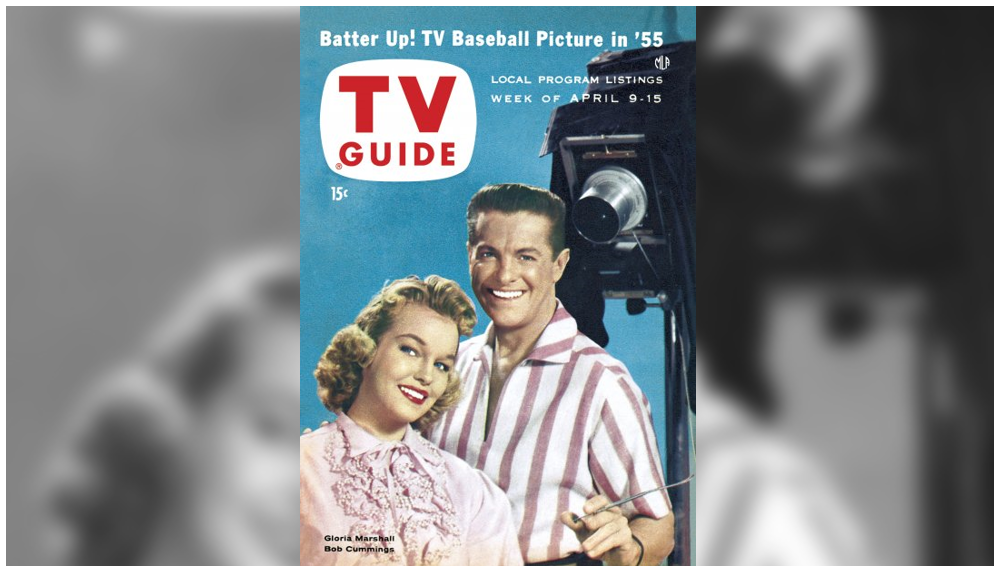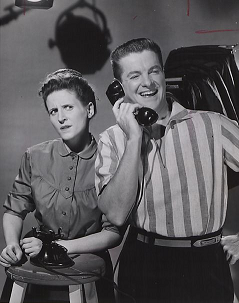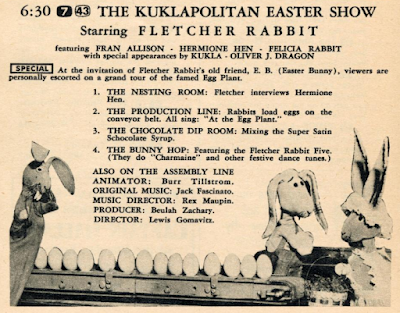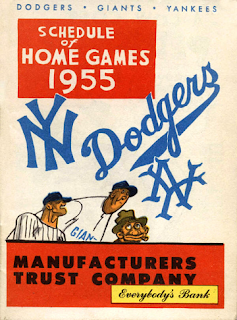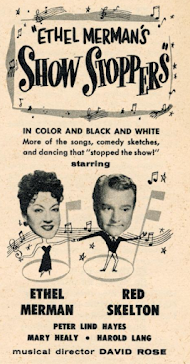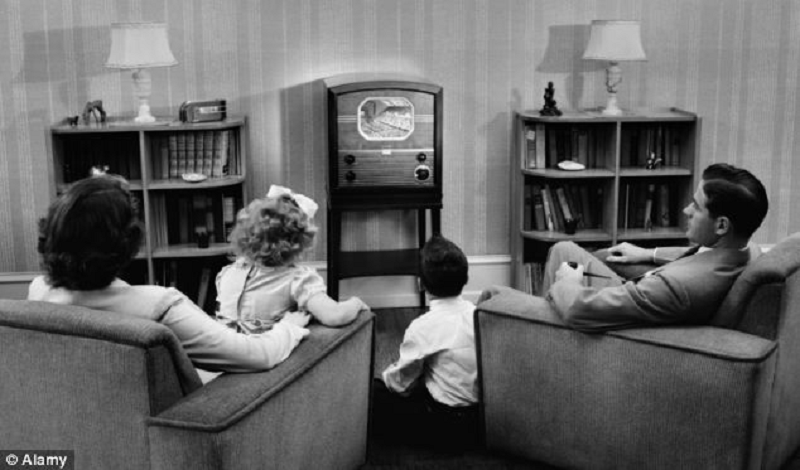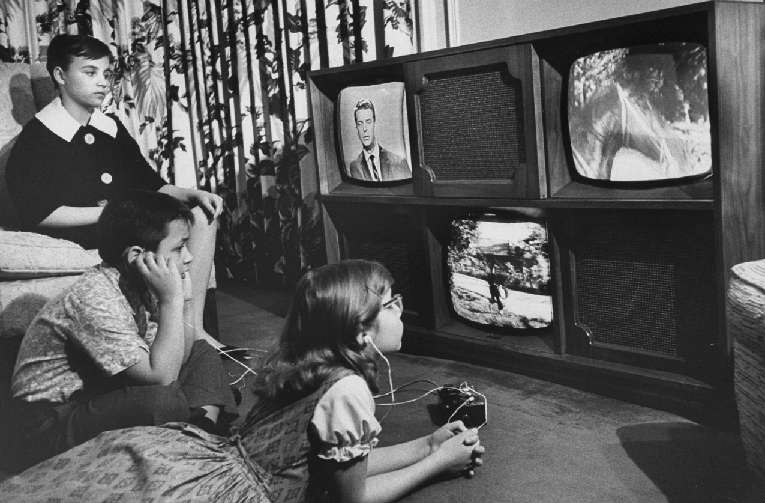Today I'm pleased to welcome Hal Horn to "It's About TV" for a look at the 70th anniversary of Love That Bob, also known as The Bob Cummings Show. You'll recognize Hal from his blog The Horn Section, where he's demonstrated his status over the years as an expert on F Troop and Hondo, among other shows; this week we'll benefit from his expertise on Bob Cummings, one of the most popular television stars of the era, reflected in the success of Love That Bob, which ran for five seasons and 173 episodes. Take it away, Hal!
by Hal Horn
Oargaret: He's an example of good, clean living! Early to bed, early to rise—
Bob: —and your girl goes out with the other guys!
The year 2025 marks the 70th anniversary for a trio of genuine classics of the sitcom genre. The Honeymooners stayed in the public consciousness for decades despite only having 39 filmed installments available: testament to the brilliance of Jackie Gleason's vision and the timelessness of the Gleason/Carney comedy team, still one of the medium's very best. Nat Hiken's venerated Phil Silvers Show might not be as ubiquitous on the airwaves as it once was, but MeTV has aired it in recent years and the eight-time Emmy winner is (like The Honeymooners) available in its entirety on home video.
Our third pioneering septuagenarian series has receded significantly from cable channels since its most recent memorable run on CBN during the 1980's, and has seen innumerable episodes lapse into the public domain since that time. With its 173 segments (nearly as many as the aforementioned shows combined) relegated to cheap PD DVD releases of the same (mostly late season) twenty-ish episodes over and over, it has never seen remastering nor even a complete season made available on VHS, DVD or Blu. As a result, one of the greatest situation comedies of TV's first decade and the first hit for the producer who would dominate its second is sadly far less available than it deserves to be: Love That Bob, also known as The Bob Cummings Show.
Love That Bob was TV's first sex comedy, about a man taking Hugh Hefner's playboy philosophy to heart and living it out while his married peers often lived vicariously through him. Set in Los Angeles, the show centered around the adventures of single ace photographer Bob Collins, surrounded by beautiful fashion models--among them Joi Lansing, Lisa Gaye, and Miss Sweden Ingrid Goude. Squiring all of them around town every chance he got, Bob carefully tiptoed away every time the subject of marriage came up.
And it came up often, as he lived with his widowed sister Margaret (Rosemary DeCamp) and her son Chuck (Dwayne Hickman, aka Dobie Gillis). Margaret was always worried about the example being set for her son, who clearly emulated and envied Uncle Bob. Plots centered around Bob's active dating life and numerous attempts at romantic conquests, the efforts of several of his models to settle him down for good, and the attempts of his loyal, plain Jane assistant Schultzy (Ann B. Davis, The Brady Bunch) to win her boss' heart herself. (Davis won two Emmys for her work, the only ones the show would win, but Cummings and director Rod Amateau were among the others receiving well-deserved nominations)
While marriage was a sacred institution in shows ranging from Father Knows Best to Leave It to Beaver, Love That Bob stood proudly in presenting an alternative view. Married life was represented by henpecked Harvey Helm (named after the Burns and Allen writer in one of the show's numerous in-jokes; Burns' McCadden Productions co-produced and co-owned this series). Helm's wife Ruth ruled the roost in his household, intimidating her Air Force vet hubby physically as well as mentally, despite her slight stature. Of course, as played by King Donovan, Harv seems even slighter than his 5'8" height by a good five inches. Harv lives in perpetual terror of Ruthie and completely harried by their two kids every time we see him. "Wolves" Bob and their Air Force buddy Paul Fonda (the omnipresent Lyle Talbot) sure seem to be having a lot more fun being single than Harv ever will.
Produced by Paul Henning (who as mentioned would later rule the 1960s with The Beverly Hillbillies, Green Acres and Petticoat Junction), The Bob Cummings Show was wittily written by a crack staff headed by Henning for the entire five-season run. That staff at various times included Phil Shuken, Dick Wesson and Bill Manhoff, with Shirl Gordon providing a very welcome female perspective on the proceedings. The bulk of the episodes were directed by Rod Amateau (the first two seasons) and Bob Cummings himself (he took over from Norman Tokar halfway through the third season and guided each episode until the 1959 finale).
Many of those who do comment on the show make fun of how unlikely a ladies' man Bob was, citing his overly theatrical mannerisms and cliched pickup lines. I think these reviewers miss the point. I mean, Hef didn't have all of those women around him because of his looks or cool either. Bob Collins was not only a financially successful single man, but he was also in a position to further a model's career as one of Hollywood's top shutterbugs. If he was objectifying the models, they were certainly objectifying him too. Tit for Tat—literally!
Also, Bob's age (his late 40's offscreen, though Collins is probably pushing 40—both older then than they are now) is not ignored and hints are dropped regarding the coming youth revolution. He is reminded by his sister that "it's later than you think" and he clearly feels threatened on those rare occasions when a younger muscleman is around. "Bob Gets Out-Uncled" is a great example of the latter, guest starring Los Angeles Rams star Elroy Hirsch; another is "Bob Meets Miss Sweden" which saw him competing with Tarzan himself, Gordon Scott. While Bob is an Air Force reserve Colonel (distancing him considerably from pure Bon Vivant Hefner) and in good shape, he's no physical match for these younger he-men.
Love That Bob is downright educational, too—to see what passed for a sex comedy within the rigid rules of 1950's television, and it is startling at times to see how far BOB (and Bob) could go within those boundaries. Margaret was his sister, but she acted an awful lot like a wife in most episodes, and her son Chuck looked a lot like Bob. . . enough to pass for his son. Bob was constantly put in the position of having to hide his latest romance from Margaret for various reasons, often sneaking out the kitchen (back) door to avoid "getting caught". Viewed within this context some episodes operate as "how to cheat on your spouse" primers, a full decade before Guide for the Married Man and in an era far more noted for gentle family comedy along the lines of Ozzie and Harriet and Leave It to Beaver.
In Love That Bob you also get to see Paul Henning laying the groundwork for his later series. as the Collins family traveled "back home" to Joplin, Missouri (both Henning and Cummings were natives) often. This allowed Cummings to whiten his hair, hunch over and play his own grandfather--an older and arguably hornier version of Bob, right down to the penchant for aviation and his own country photography studio where the old-timer could woo models too. Future "Miss Jane" Nancy Kulp plays a birdwatching expert in multiple episodes who, like Schultzy, pined for Bob but couldn't compete with the curvy models. And while Henning was credited with introducing multi-episode arcs to sitcoms on Hillbillies, he actually started doing it on Love That Bob. Among the more memorable ones: a "will he or won't he" with guest star Lola Albright almost getting Bob to the alter across six 1955 episodes; Chuck's four episode foray into singing; and a screamingly funny two-parter with Bob saving Harvey Helm's job by double dating with obnoxious furniture king Jesse White.
While Bilko and Ralph Kramden almost always failed in their get-rich-quick schemes, Bob Collins frequently succeeded in his romantic conquests despite the forces of conventionality lined up against him. Yes, he crashed and burned often under his own hubris (two great examples: "Bob Batches It" and "Bob and Automation") but there's a startling number of times that Bob has either succeeded already ("Bob and the Ballerina") or it is clear that he's about to ("Bob Traps a Wolf," "The Dominant Sex") before we diplomatically fade to black. Bilko never got rich, but Bob certainly did get laid. Offscreen, of course—we had boundaries seven decades ago. Rather strict ones, and in a decade with precious few subversives on the tube, you can make a strong case that Bob Collins out-rebeled Kingfish, Bilko and the Maverick brothers.
Getting Love That Bob/The Bob Cummings Show the greater recognition and availability it deserves has been a cause celebre of The Horn Section for some time now. To that end, I'm 48 episodes into my episode guide for the show, and my YouTube channel has nine episodes that aren't among those twenty-ish in public domain Hell available for viewing. While two are from the disappointing final season, the other seven are from the show's prime years, its second through fourth seasons. I hope to have more on the way in the coming months. In closing, I'd like to thank Mitchell for inviting me to guest post on It's About TV. TV










